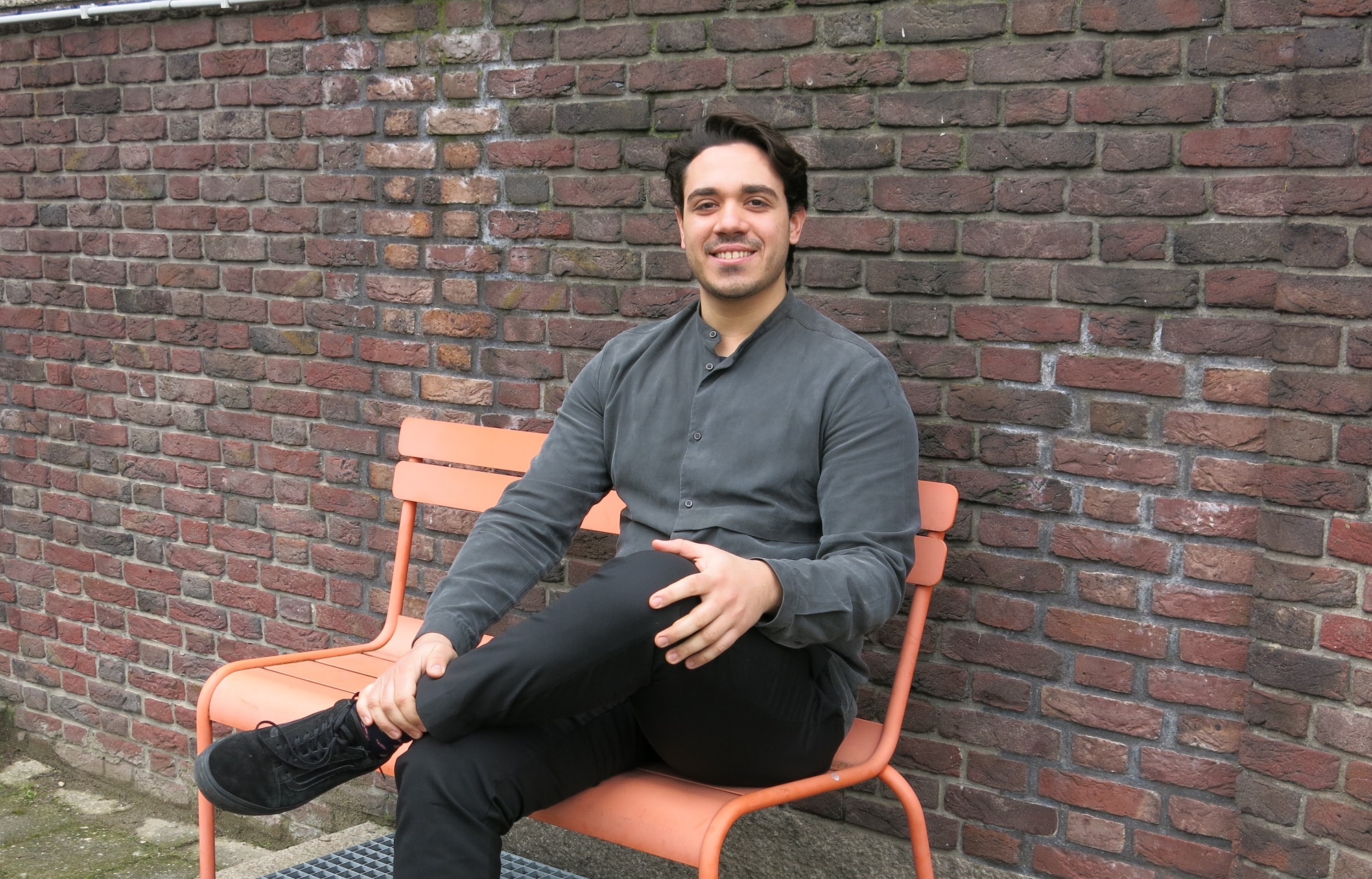The pandemic inspired Andrea Cappiello to make some adjustments to his master’s thesis project, reframing his design for a future-proof post-pandemic scenario.
Andrea Cappiello. (Photo: Heather Montague)
In this special series, Delta takes a personal look at how Covid-19 and the lockdown have impacted the people who work or study at TU Delft.
“Before the Covid pandemic I was working on my thesis project. It started with comprehensive research about infrastructure, the power of networks, and how they can affect cities. In parallel, I was looking at events, especially from an economic perspective and how the economic context has shifted from a service-based model to more of an experience-based model. So culture has become part of this economic spectrum.
Under normal circumstances, many European cities such as Berlin, London, and Milan all have these series of thematic events. For instance, things like Design Week, Cinema Week, and Art Week often take place in the heart of these cities despite their lack of site specificity. For example, the municipality of Amsterdam strongly promoted events and now, reflecting on the situation, the city has experienced many consequences that have resulted from event-driven tourism. There is a loss of liveability – you see tensions between tourists and locals daily. So, what used to be a local civic space is now more of a globally oriented commercial space, used primarily for economic purposes, that challenges the role of public space for its residents.
‘This pandemic has proven an intrinsic relationship between public space and the cultural economy’
I chose to focus my research on the city of Milan, because under normal circumstances it has a very tight event schedule throughout the entire year. It made me question whether events are still something temporary, with a beginning and an end, or if they became the new normality of a city’s routine. Because of their constant intensity, the quality of everyday experiences in public space is jeopardised. Overall, this pandemic has proven an intrinsic relationship between public space and the cultural economy, or event-driven tourism, for the city of Milan. We have seen how the extreme lockdown that Italy correctly imposed in order to ‘flatten the curve’ and save many lives, had major economic implications.
I indeed had to reconsider my design project due to the impact of the pandemic. The very first adjustment I made was to break down the design of the project into different phases. Instead of designing a series of buildings, I opted to only design the ‘Phase 01’: a building which could host different types and sizes of cultural events and that could act as a catalyst for the development of the broader area in a post-pandemic scenario.
Secondly, I used a dry construction technique which means that the building is reversible and could adapt and change to host different activities. This was also inspired by seeing how many current mixed-use buildings have been converted into temporary hospitals to cope with the numbers of Covid patients.
I believe that my thesis topic is extremely relevant, especially for Milan. If, on one hand, the pandemic has completely paralysed the cultural economy of the city of Milan, on the other hand, we have seen how as we come out of this extreme lockdown. There is a great desire for people to be able to go out and experience once again.
If we are going back to normality, I think the project could be a key pillar for the great re-starting of the city of Milan and for its cultural economy strategy. Or, in the case of new normality, with restrictions and limitations on the international flow of people in and out of Milan, the project construction technique allows for a reversible and adaptable future-proof design.”
Heather Montague / Freelance writer



Comments are closed.